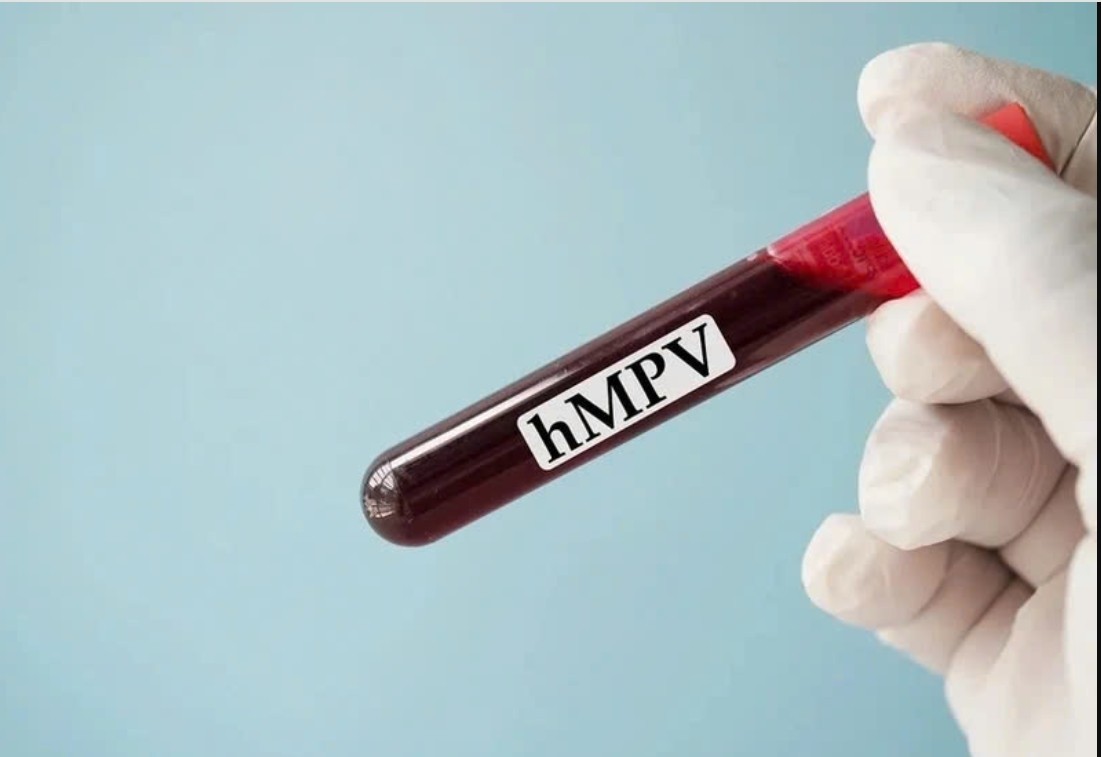Omicron Variant: Symptoms, Vaccines Efficacy and Best Ways to Avoid
 |
| Omicron Variant - How Dangerous? |
Amid fears that the recently identified new variant Omicron has the potential to be more resistant to the protection offered by vaccines, there are growing concerns that the pandemic and associated restrictions will persist for far longer than hoped.
Here's what we know so far:
Omicron: Will the COVID-19 Pfizer, Moderna, AstraZeneca vaccines protect you?
The simple answer right now is "most likely" — but no one knows for certain.
This strain has been detected in vaccinated and unvaccinated people in South Africa and, according to the experts, is so far causing extreme fatigue but only mild disease.
According to Westmead Institute virologist Tony Cunningham, scientists around the world — including those in Australia — would be looking at whether protective antibodies in the vaccines were "sufficiently high" to cover this strain.
"My suspicion is the vaccines we use in Australia [Pfizer, Moderna, AstraZeneca] will cover severe disease against the Omicron variant," Cunningham, a vaccine expert with four decades experience, said to ABC (Australia).
"It clearly can infect people that are immunised.
"But, remember, we only need a small amount of antibody to protect against severe disease."
What is the Omicron variant?
A new variant of SARS-CoV-2, known first as B.1.1.529 and now named omicron, has an unusually high number of mutations and appears to have triggered a recent surge in cases in South Africa.
An advisory panel of the World Health Organization on Friday classified a worrying new COVID-19 variant first detected in South Africa as a highly transmissible virus of concern, naming it “omicron” under its Greek letter system. It opted to skip the letter N, perhaps for clarity, as this would be known as the “Nu” variant.
The WHO also said early evidence on the variant, until now known by the technical term B.1.1.529, has shown an increased risk of reinfection compared to other highly transmissible variants, indicating that people who contracted COVID-19 and recovered could be more subject to catching it again with Omicron. The WHO suggested that the variant could pose greater risks than the delta variant, which was first detected in India and has been causing ravages worldwide.
Omicron Symptoms: Not suffer the loss of taste or smell
The W.H.O. said the new version, named Omicron, carries a number of genetic mutations that may allow it to spread quickly, perhaps even among the vaccinated.
The South African doctor who first sounded the alarm on the Omicron variant of the coronavirus said that its symptoms are “unusual but mild” in healthy patients. “Their symptoms were so different and so mild from those I had treated before,” Dr. Angelique Coetzee, a practicing doctor for 30 years who chairs the South African Medical Association (SAMA), told The Telegraph.
So far, she’s had two dozen patients who tested positive and showed symptoms of the new variant, mostly young men. About half of the patients were unvaccinated, she said. None of those infected lost their sense of smell or taste. “It presents mild disease with symptoms being sore muscles and tiredness for a day or two not feeling well,” Coetzee told the paper. “So far, we have detected that those infected do not suffer the loss of taste or smell. They might have a slight cough. There are no prominent symptoms. Of those infected some are currently being treated at home.”
How is Omicron different from other variants?
The most concerning difference between B.1.1.529 and other known variants is that it has a “very unusual constellation of mutations,” according to Tulio de Oliveira, the director South Africa’s Centre for Epidemic Response and Innovation. Those roughly 50 mutations of note include over 30 on the virus’ spike protein, including 10 mutations on a key protein (the ACE2 receptor) which helps the virus infect humans — whereas the Delta variant has two mutations on the ACE2 receptor, and the Beta variant has three.
The high number of mutations, relative to other variants, does not necessarily mean Omicron is more transmissible or better able to evade immune responses (like the protection induced by vaccines) than other variants. But Omicron’s mutations — which include ones scientists haven’t seen before, as well as ones which they have — suggest it might be.
“If we were looking out for mutations that do affect transmissibility, it’s got all of them,” University of Oxford evolutionary biologist Aris Katzourakis told Science.
The World Health Organization designated Omicron a “variant of concern,” pointing to its “large number of mutations” as well as how “preliminary evidence suggests an increased risk of reinfection” with the variant.
What can I do - best ways to avoid
Though the variant’s existence was first reported by South Africa, it has also been found inBelgium, Botswana,Germany, Hong Kong, Israel, Italy, and the United Kingdom, meaning the variant has already spread — though how far is unclear, as new cases continue cropping up around the world.
All the usual measures of social distancing, handwashing, mask-wearing, getting vaccinated and having a booster shot still apply. The emergence of such a potentially worrying variant is, however, a reminder of the risk of uneven vaccination rates globally – only 24 per cent of people are fully vaccinated in South Africa.
Existing tools, however, should still be effective in stopping omicron— PCR tests appear to detect the variant, according to the WHO, and Francis Collins, the director of the National Institutes of Health, told NPR on Friday that “there is no data at the present time to indicate that the current vaccines would not work [against omicron].”
Additionally, masking and social distancing both are proven strategies to stop the spread of Covid-19, as are getting vaccinated and getting a booster shot.
Will COVID vaccines and treatments still be effective against Omicron?
Coronavirus vaccines, particularly the ones available in the U.S. like Pfizer and Moderna’s mRNA vaccines, have all remained effective against all other known variants thus far in the pandemic.
William Hanage, an epidemiologist at the Harvard T.H. Chan School of Public Health and other researchers said that vaccines will most likely protect against Omicron, but further studies are needed to determine how much of the shots’ effectiveness may be reduced, accdording to Nytimes.
A number of pharmaceutical firms, including AstraZeneca, Moderna, Novavax and Pfizer, said they have plans in place to adapt their vaccines in light of the emergence of omicron. Pfizer and its partner BioNTech said they expect to be able to tweak their vaccine in around 100 days.
As vaccines differ in the magnitude of neutralising antibody induced, the extent to which vaccines are compromised in preventing infections due to Omicron will likely differ, as was the case for the Beta variant.
However, as vaccines also induce a T-cell response against a diverse set of epitopes, which appears to be important for prevention of severe COVID, it is likely that they would still provide comparable protection against severe Covid due to Omicron compared with other variants.
The same was observed for the AstraZeneca vaccine. Despite not protecting against the mild-moderate Beta Covid in South Africa, it still showed high levels of protection (80% effective) against hospitalisation due to the Beta and Gamma variants in Canada.
| Fear: The new variant (Omicron) will be resistant to the new anti-COVID pills like molnupiravir or paxlovid No worries: Omicron’s mutations are in the spike protein of the virus. The above pills act on replication (different target) and will remain effective. |
What not to do
Don’t have domestic (or international) travel bans. The virus will disseminate irrespective of this – as has been the case in the past. It’s naive to believe that imposing travel bans on a handful of countries will stop the import of a variant. This virus will disperse across the globe unless you are an island nation that shuts off the rest of the world.
Don’t announce regulations that are not implementable or enforceable in the local context. And don’t pretend that people adhere to them. This includes banning alcohol sales, whilst being unable to effectively police the black market.
Don’t delay and create hurdles to boosting high risk individuals. The government should be targeting adults older than 65 with an additional dose of the Pfizer vaccine after they’ve had two shots. The same thing goes for other risk groups such as people with kidney transplants, or people with cancer and on chemotherapy, people with any other sort of underlying immuno-suppressive condition.
Stop selling the herd immunity concept. It’s not going to materialise and paradoxically undermines vaccine confidence. The first generation vaccines are highly effective in protecting against severe COVID-19, but less predictable in protecting against infection and mild COVID due to waning of antibody and ongoing mutations of the virus. Vaccination still reduces transmission modestly, which remains of great value, but is unlikely to lead to “herd-immunity” in our lifetimes.
There is also a list of things that should be considered in the wake of the Omicron variant, irrespective of whether it displaces the Delta variant (which remains unknown).
When and Where was Omicron first identified?
It was first detected on 23 November in South Africa using samples taken between 14 and 16 November. Joe Phaahla, South Africa’s health minister, said on 25 November that he believes the variant is behind an exponential daily rise in covid-19 cases across the country in recent days. The same day, the UK Health Security Agency (HSA) designated it a variant under investigation, triggering travel restrictions for people travelling to the UK from South Africa, Botswana, Lesotho, Eswatini, Zimbabwe and Namibia.
The World Health Organization had listed B.1.1.529 as a variant under monitoring, but its Technical Advisory Group on SARS-CoV-2 Virus Evolution decided on 26 November to class it as a variant of concern. The WHO has now named it omicron after the Greek letter.
National daily cases have gone from 274 on 11 November to 1000 a fortnight later. While the rate of growth has been fast, absolute numbers are still relatively low compared with the UK, which saw 50,000 cases on 26 November. More than 80 per cent of South Africa’s cases are currently in the country’s Gauteng province.
All of the 77 cases sequenced in the province between 12 and 20 November were identified as being caused by the variant. The estimated reproduction number, the average number of people that an individual is likely to infect, is almost 2 in Gauteng compared with nearly 1.5 nationally.
How far has it spread around the world?
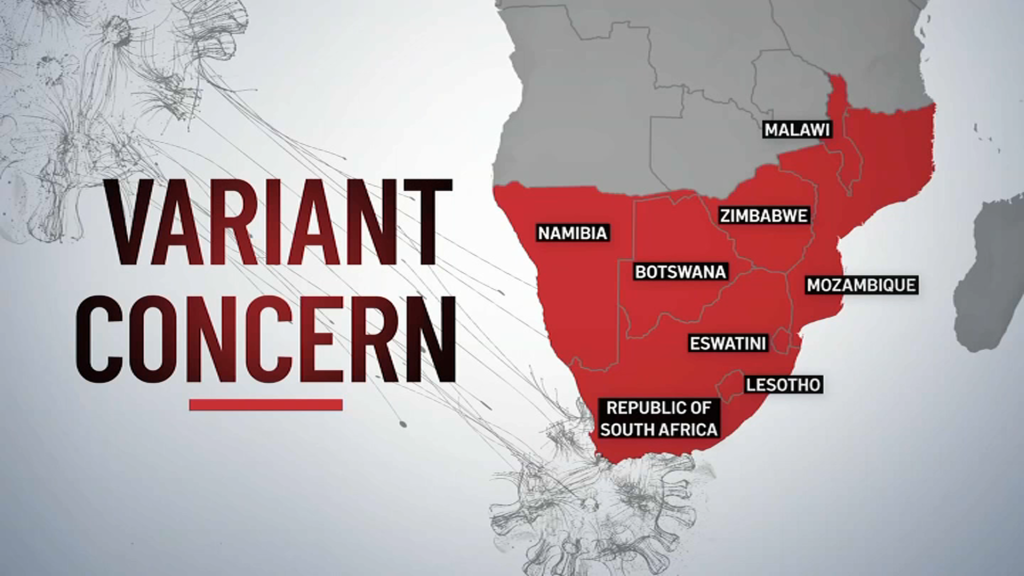 |
| Omicron - The new variant |
The Omicron variant has already reached Europe, with Belgium reporting its first case late on Friday. Confirmed cases of Omicron have also been found in Hong Kong, Israel, and Botswana.
The EU and the United States have also imposed a travel ban on the six countries, with the US adding Mozambique and Malawi to the list.
Genomic sequencing has found the variant in South Africa, Botswana and Hong Kong. There are also reported cases in Israel, apparently originating from a traveller from Malawi, and in Belgium, from someone who had travelled from Egypt.
UK health secretary Sajid Javid said it is “highly likely” that the variant has spread to other countries. As of 27 November, two cases had been detected in the UK, where about a fifth of positive cases are sent for genomic sequencing.
Even in countries with low levels of sequencing, it may be possible to get early warning signs, because the variant is linked to a mutation called S-gene dropout, which is picked up by PCR tests, says Jeffrey Barrett at the Wellcome Sanger Institute in Hinxton, UK.
What are governments doing to contain the Omicron variant?
There have been no confirmed cases of the new variant in the United States yet, but officials believe it may already be here. Two cases have been confirmed in the United Kingdom, which joined the US and European Union in issuing travel restrictions.
President Joe Biden announced new travel restrictions on eight southern African countries, which will take effect on Monday. Travel from Lesotho, South Africa, Eswatini, Namibia, Zimbabwe, Mozambique, Malawi, and Botswana will be restricted, though those restrictions won’t apply to US citizens or green card holders, among other groups. As of Saturdaythe US has not imposed any new travel restrictions on the European or Asian nations where the omicron variant has appeared.
Many countries have slapped restrictions on various southern African countries over the past couple of days including Australia, Brazil, Canada, the European Union, Iran, Japan, Thailand and the United States, in response to warnings over the transmissability of the new variant — against the advice of the World Health Organization. Pharmaceutical companies expressed optimism that they could finesse their vaccines to deal with the new variant though that would clearly take some time.
Despite the banning of flights, there are mounting concerns that the variant has already been widely seeded around the world. In addition to the U.K, cases have been reported in travelers in Belgium, Israel and Hong Kong. Germany also said it suspected a positive case and Dutch authorities were testing whether 61 people who arrived on two flights from South Africa with COVID-19 have the omicron variant.
The UK and EU have both imposed restrictions on people travelling from countries in southern Africa, with Javid saying the variant is of “huge international concern”. Prime minister Boris Johnson announced further travel restrictions on 27 November.
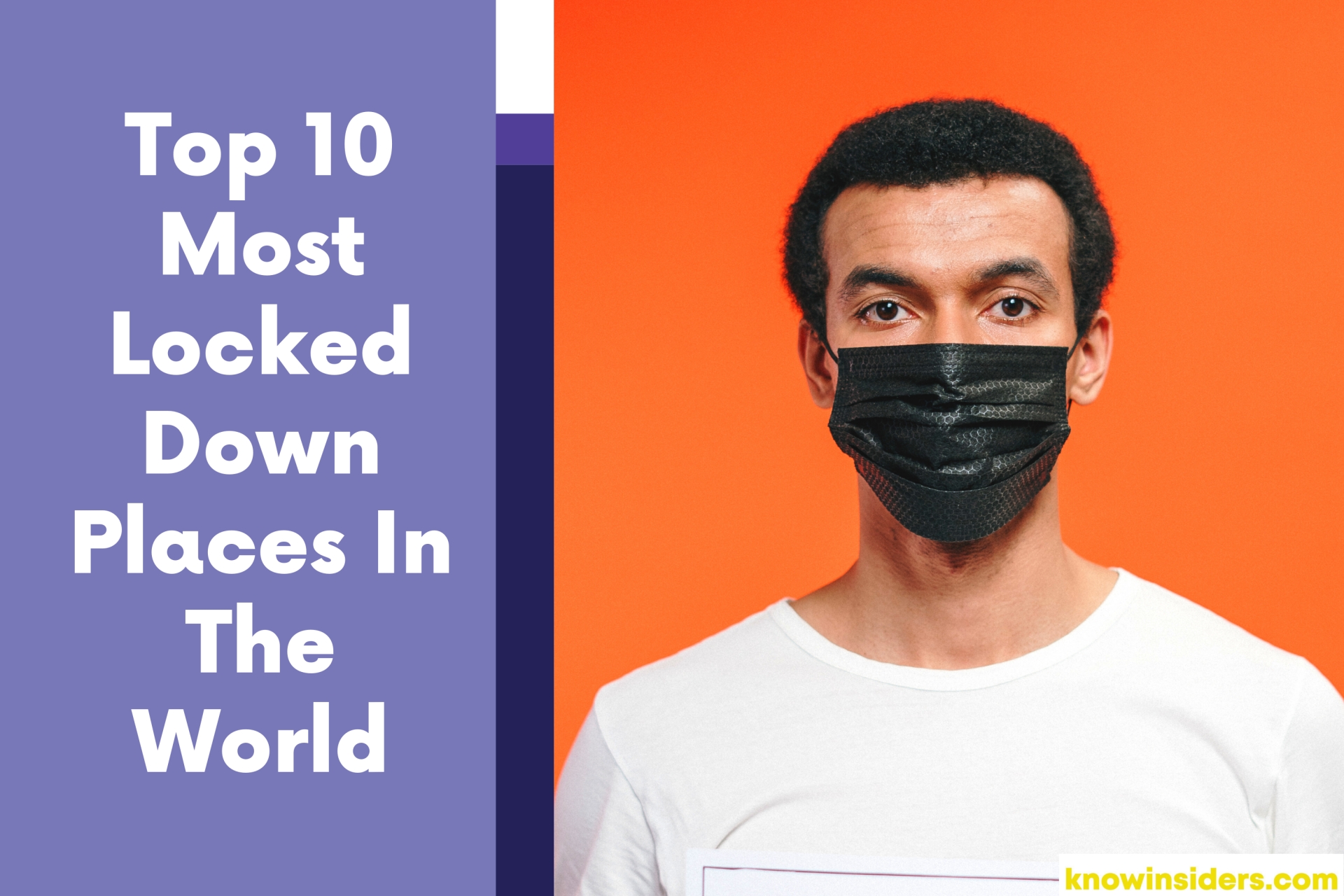 Top 10 Most Locked Down Places In The World - During Covid-19 Pandemic Top 10 Most Locked Down Places In The World - During Covid-19 Pandemic Lockdown is definitely the word we heard the most over the past nearly two years since the pandemic broke out. Which countries have been in ... |
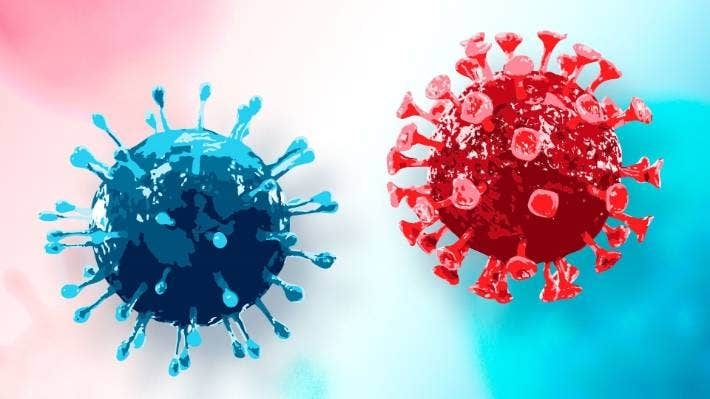 What is Mu – New Coronavirus Variant of Interest What is Mu – New Coronavirus Variant of Interest The World Health Organization (WHO) has added another coronavirus variant to its list to monitor. It’s called the mu variant and has been designated a ... |
 Top 10 Weirdest Fashion Trends During COVID-19 Pandemic Top 10 Weirdest Fashion Trends During COVID-19 Pandemic COVID-19 has changed our ways of living, eating and wearing. New fashion trends have emerged in the pandemic. Many ... |
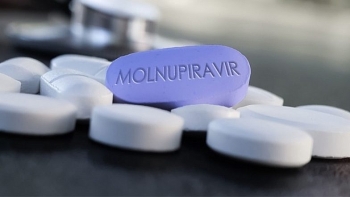 What is Covid-19 Oral Drug Molnupiravir: Latest News, Treating for Patients and Results What is Covid-19 Oral Drug Molnupiravir: Latest News, Treating for Patients and Results Covid-19 Oral Drug Molnupiravir showed that the antiviral drug resulted in statistically significant fewer hospital admissions, faster recovery time. |

